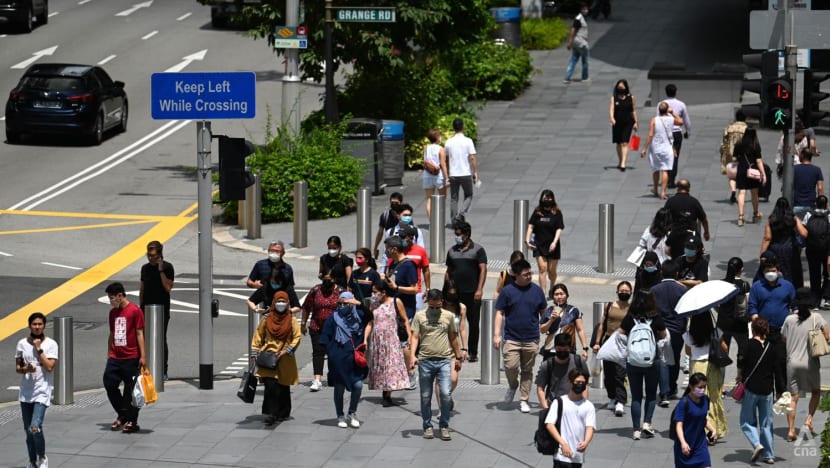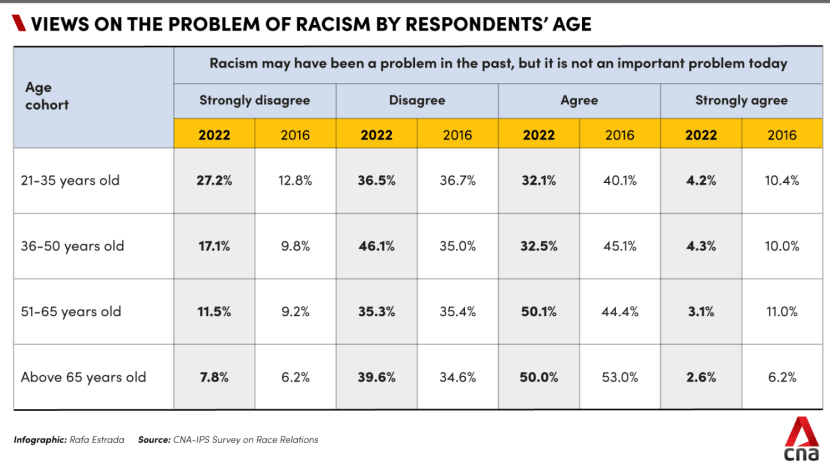Growing number of people in Singapore feel racism is an important problem: CNA-IPS study

People seen walking along Orchard Road in Singapore on Mar 29, 2022. (Photo: CNA/Marcus Mark Ramos)
SINGAPORE: A growing number of people think that racism remains an important problem even while the overwhelming majority believe everyone in Singapore can become rich or successful regardless of their race, according to a survey on race relations conducted by CNA and the Institute of Policy Studies (IPS).
More than half of the survey’s respondents (56.2 per cent) felt that racism is an important problem, which was an increase from the previous CNA-IPS survey conducted in 2016 (46.3 per cent).
Despite this, a large majority of people believe that meritocracy is not contingent on race, with more than 80 per cent of respondents agreeing that everyone can become rich or successful irrespective of what race they are, which was consistent with the findings from the 2016 survey.
Conducted last year, the second CNA-IPS survey on race relations polled more than 2,000 Singapore residents aged 21 and above. Their racial composition and the type of homes they live in are reflective of the Singapore population, but an additional 350 or so Malay and Indian respondents were polled so that their views were properly represented.
In the 255-page report, researchers noted that those who feel racism is an important problem tended to be below the age of 50 and had education beyond the secondary level.

While most respondents (88.8 per cent) said it is important for political leaders to talk openly about racism, more than half (58.6 per cent) also felt that such public discourse could cause unnecessary tension.
They may feel that political leaders taking the lead in such discussions could avert some of the potential tension, said the report.
It noted that Chinese respondents (54.9 per cent) were slightly more likely to feel that ethnic minorities are getting overly sensitive in discussions on race, compared to Indian (42.7 per cent) and Malay respondents (47.8 per cent).
The survey also found that respondents were evenly divided on whether there is majority privilege in Singapore, with 53.9 per cent feeling that being of the majority race is an advantage. This was comparable with findings from the 2016 survey, where 52.7 per cent felt this way.
Those between the age of 12 and 35, especially Malay and Indian respondents, were generally more likely to feel that majority privilege exists.


No comments
Share your thoughts! Tell us your name and class for a gift (: